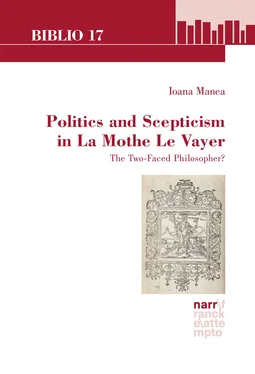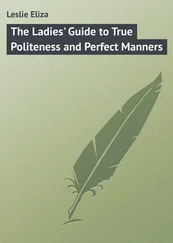In order to oppose the Port-Royal refusal of curiosity, La Mothe Le Vayer combines rhetorical and theological arguments. From a rhetorical perspective, although he does not deny the fact that the Port-Royal position on curiosity springs from highly pious feelings, he considers it so unreasonable that he holds it should not be taken literally.3 The Port-Royal rejection of curiosity deserves to be ridiculed because of its excess, which derives from the paradoxes it defends. According to La Mothe Le Vayer, by condemning, for instance, the curiosity for the most natural things and events like a spider that is about to catch its prey or the latest developments in one’s own country, the followers of Port-Royal argue for paradoxes that, ironically, bring them closer to the Stoics.4 Famous for their taste for paradox,5 the Stoics were blamed by Port-Royal because of their pride. Leaving aside his own practice of paradox as a way of questioning the well established opinions, the writer uses it in this case in order to stress that the Port-Royal opposition to curiosity is impossible to be reasonably justified and therefore accepted.
Since the school of Port-Royal refuses to admit curiosity motivated by theological reasons, in his polemic against it, La Mothe Le Vayer uses, in addition to the rhetorical arguments, theological arguments. Through an implicit reference to Thomas Aquinas’ Summa theologica (IaIIae, q. 57, a. 1 and 2), which is inspired by Aristotle’s Nicomachean Ethics (VI. 3), our writer argues that “The desire to know is so natural, that it would be too unjust to condemn it thoroughly, and to turn into a vice what serves as foundation for the three intellectual virtues, science, wisdom and understanding” (“L’envie de savoir est si naturelle, qu’il y aurait trop d’injustice de la condamner absolument, et de faire un vice de ce qui sert de fondement aux vertus intellectuelles, la science, la sagesse, et l’intelligence”).6 Hence La Mothe Le Vayer legitimises curiosity by using it as a preamble to the three intellectual virtues, supposedly unanimously accepted. Hardly random, the reference to Aquinas allows him to adopt a polemical strategy which consists in opposing to Port-Royal an authority whose weight is comparable to that of St. Augustine.
The curiosity that La Mothe Le Vayer aims at rehabilitating against Port-Royal is, as it has previously been shown, a compulsory starting point for the activity of the man of letters and does not concern only the written books, but also the big “book of the world”. In order to satisfy his curiosity for the latter, La Mothe Le Vayer is, for instance, interested in travel accounts and the scientific discoveries made during his time.7 So as to please his taste for the travel accounts, he does not content himself with those about the regions that have already been visited, but tries to find solutions for filling the gaps about the regions that have not at all or hardly been explored. For the purpose of obtaining accounts of Muscovy, Iceland or Greenland, he thinks about the contribution that could be made by the French diplomats and ambassadors sent to countries like Sweden, Denmark, Poland and the Netherlands, which are already in contact with the countries of the Great North.8
Regarding the lands even more remote and ignored like the “Australian lands”, he thinks of a solution, which despite being allegedly inspired by “what has always been practised, when people wanted to explore new countries” (“ce qui a toujours été pratiqué, lorsqu’on a voulu faire descente en de nouveaux pays”),9 nowadays seems baffling. The solution is about the advantage that can be taken from the convicts whose sentence would be proportionate to the dangers to which they would have to cope with in the regions where they would be exiled: “According to the sentence that has been inflicted upon them, some can be exposed in places which will seem uninhabited, others among savages who are often very inhuman, and sometimes even cannibalistic” (“Selon la peine qu’ils doivent souffrir, on en peut exposer les uns en des lieux qui paraîtront inhabités, les autres parmi des sauvages qui sont souvent très inhumains, et même parfois anthropophages”).10 In case they managed to survive, the convicts could collect information that would allow them to get the relief or even the forgiveness of their crimes. Restricted to the places that were entirely ignored, this solution emphasises the acquisition of knowledge, at the expense of the sufferings that it would impose on the individuals who would actually have to put it into practice. According to La Mothe Le Vayer, in the case of distant regions, which have never been explored before, the accounts of the convicts are likely to represent a second best strategy for meeting the curiosity of their scholarly contemporaries. However, in the case of the places, which have been partially explored and may attract more visitors, the scholars are entitled to ask more from the accounts that describe them. More precisely, these accounts should be written by authors who speak the language of the country that they visit, have a certain knowledge of astronomy and know how to draw in order to be able to understand and to represent the position and the appearance of the places they depict.11
The reading of the “book of the world” goes through the mediation of the travel accounts for reasons that, at first glance, seem pragmatic. According to the terms used by La Mothe Le Vayer, the books that tell the story of journeys to regions that are totally unknown or only little known enable men of letters to “cross the sees without losing ground” (“travers [er] les mers sans perdre terre”) or to avoid “running the risks of long journeys” (“courir les fortunes des voyages de long cours”) .12 Undoubtedly, the travel accounts have the advantage of preserving the scholars from danger and of giving them access to a multiplicity of places that they would be unable to see during their lifetime. Besides that, the accumulation of information about the world thanks to the recent geographic discoveries contributes to the revision or the completion of the knowledge inherited from antiquity: “the accounts […] that let us know the effects of nature either in the ancient, or in the new world, so surprising, that it seems the Ancients only knew half of it and it has well appeared to us only during the last century” (“les relations […] qui nous font connaître les effets de la nature, soit dans l’ancien, soit dans le nouveau monde, si surprenants, qu’il semble que les Anciens ne l’eussent connue qu’à demi, et qu’elle ne se soit bien manifestée à nous que depuis un siècle”).13 Far from being purely informative, La Mothe Le Vayer’s interest in the travel accounts also derives from his view of them as the “novels of philosophers as well as of people of some learning” (“romans des philosophes aussi bien que des hommes de quelque étude”).14 Inspired by the way in which the novel is perceived in his time, the author argues that it only “aims at pleasing” (“ne vise qu’à plaire”).15 Applied to the travel accounts, this reflection means that they are at the origin of an entertainment, which is specific to scholars. Certainly, the entertainment that the travel accounts afford to the scholars is different from the one that the novels afford to their readers. The novels are a source of entertainment because they animate passions like, for instance, love, which dominate the ignorant and idle minds.16 As for the travel accounts, they are behind an enjoyment that pertains to wonder:
But since we find many fictitious tales while reading these books, we have to admit, that there is no other reading that is more instructive or more worthy of us, because we are in this world only in order to contemplate its wonders, which cannot be seen anywhere in such great numbers or so well explained as in these travel accounts […]
Читать дальше












